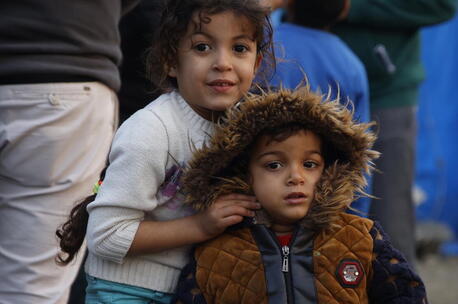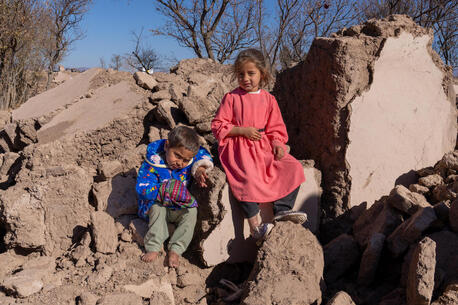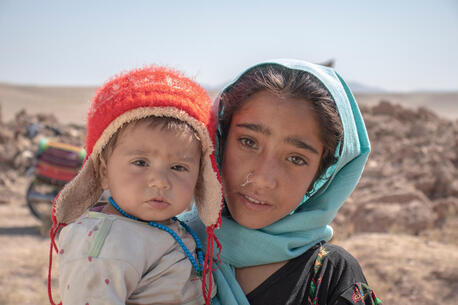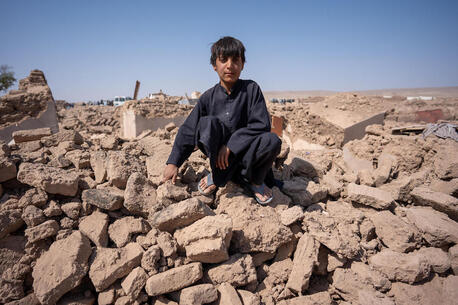
Picking Up the Pieces After Deadly Earthquakes in Afghanistan
One month after a series of devastating earthquakes hit western Afghanistan, children and their families face a long road to recovery.
Eleven-year-old Milat was just a few feet away from the wall of his neighbor’s house when it fell on his little brother Serajuddin. A pile of rubble filled the spot where his brother had been standing only seconds before.
Everything around Milat happened so fast. People ran and screamed for help. In an instant, his entire village had crumbled from the impact of a 6.3-magnitude earthquake on Oct. 7.
“I ran home to get help and found my mother buried up to her neck,” recalls Milat.
His father and two neighbors dug through the rubble to save Serajuddin and their mother. She survived, but Serajuddin did not make it.
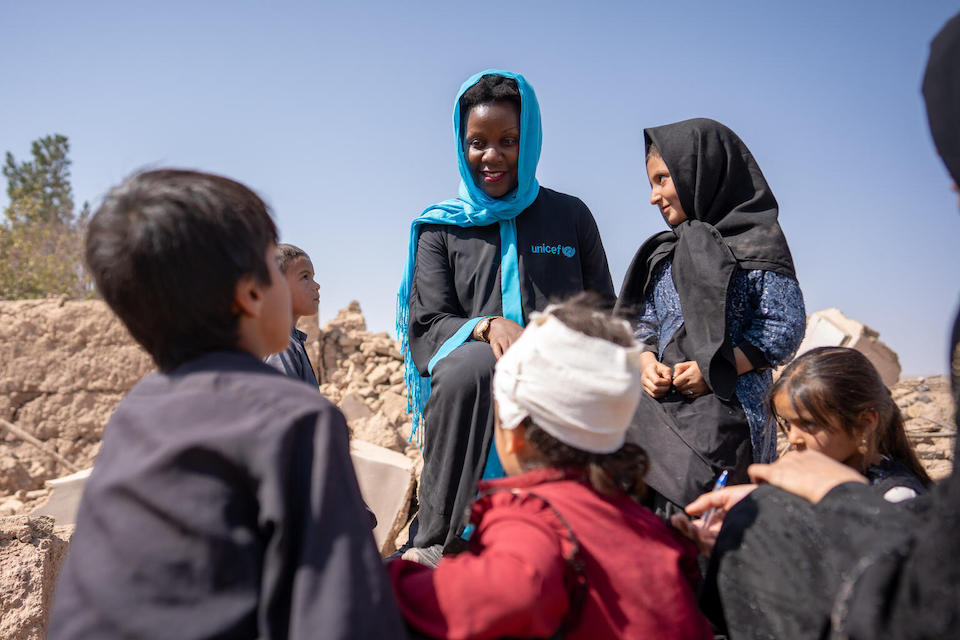
Homes, schools and health clinics gone in an instant
Milat’s injured friends and neighbors were taken to the hospital as rescue workers continued to search for survivors. Milat and his family traveled to Herat City, in western Afghanistan, where his mother is still being treated for a broken back.
“We came back to the village the next day, but we have no house, so now I sleep in a tent,” explains Milat. His school, the health clinic, the village mosque and some water distribution lines were also destroyed in the earthquake.
When another 6.3-magnitude earthquake hit early in the morning on Oct. 11, Milat was asleep. He was awakened by the ground shaking beneath him. There were no houses to fall this time, so there were no deaths, but the fear lingers.
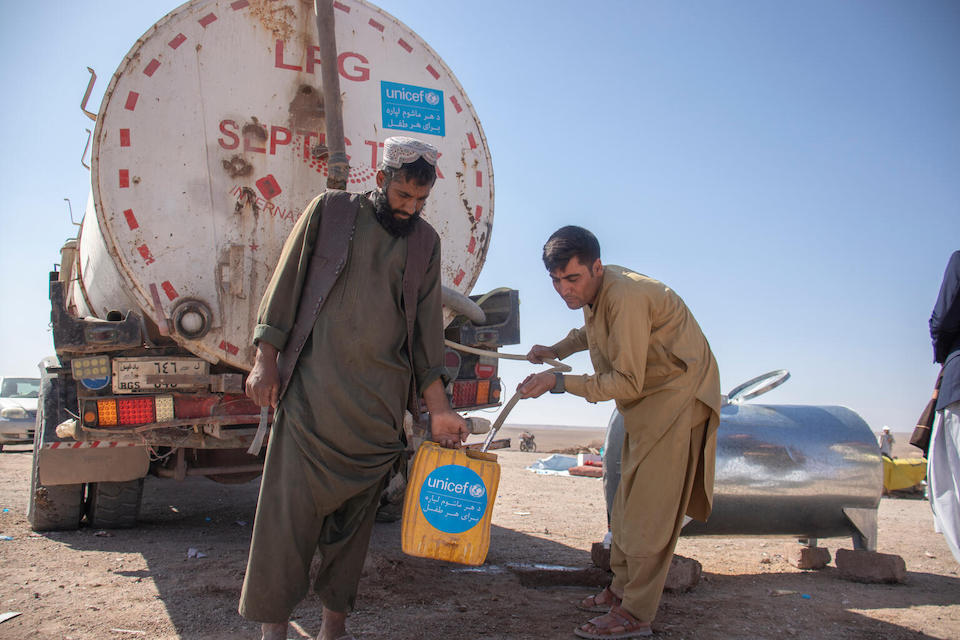
UNICEF is working with partners to reach children with emergency supplies and services
A third 6.4-magnitude earthquake struck Herat on Oct. 15. More houses, health centers, schools, water sources and other infrastructure on which children and families depend were damaged. The powerful quakes and aftershocks were the latest in a host of multiple overlapping crises in Afghanistan.
With 1,480 lives lost and thousands more injured and displaced, the road ahead is a tough one for children like Milat and their families. He doesn’t know if there will be a new school for him to go to.
“When I grow up and become an engineer, I will rebuild our house and the whole village,” he says.
When I grow up and become an engineer, I will rebuild our house and the whole village. — Milat, 11
UNICEF has been on the ground providing medicines and mobile health teams to treat the injured, trucking safe water to affected families and delivering buckets, jerry cans, soap, household utensils, blankets and winter clothes.
With funding from the European Civil Protection and Humanitarian Aid Operations (ECHO), UNICEF is establishing 100 temporary learning centers, so children like Milat can return to school.
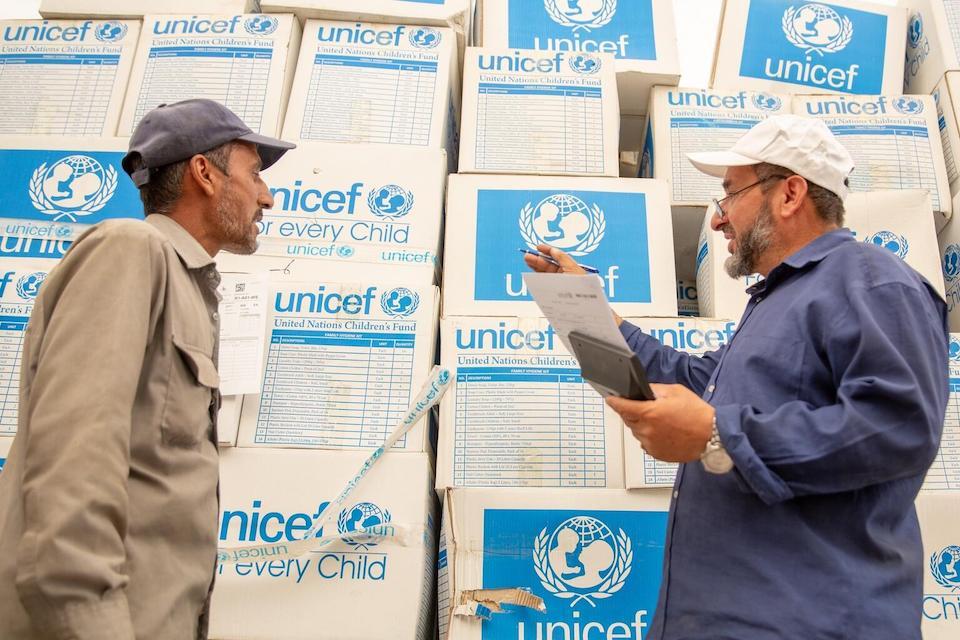
After the first quake, families slept outdoors, afraid their homes would collapse
The tale of loss is echoed across villages. Chahak, some 18 miles from Herat City, is outside the epicenter of the first earthquake, but the aftershock stirred enough fear to force people out of their homes. Many slept in makeshift shelters, afraid to fall asleep inside a building that might collapse overnight in yet another quake.
When another earthquake struck the village, many lives were spared, as structures were already destroyed. Still, 500 more families lost their homes, and one school was flattened.
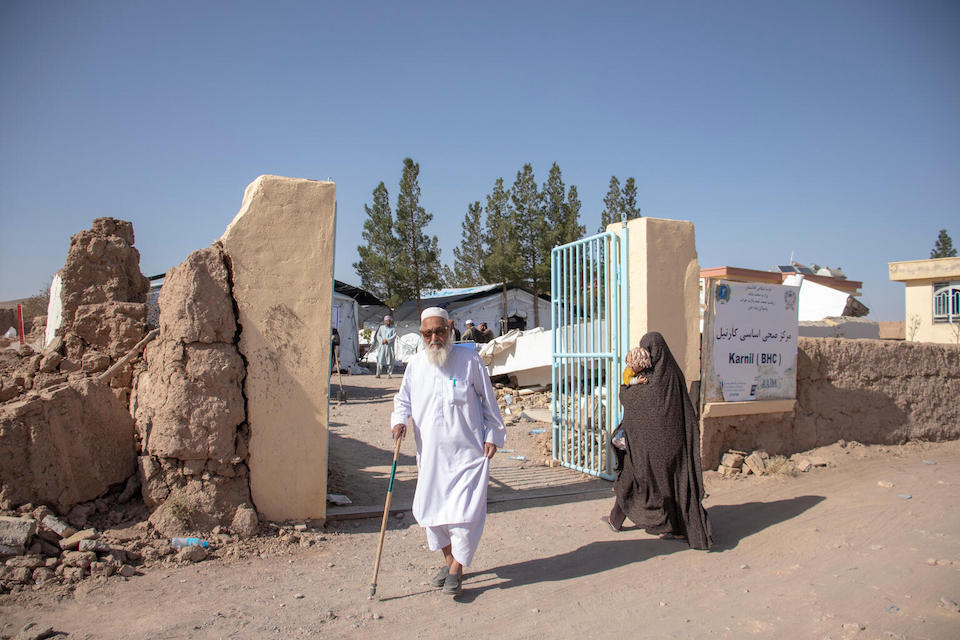
Coping with the loss of livelihood
Bibi Jan, her husband and their three young children lost their house, their property and their sheep — their entire livelihood. Looking over the expanse of dry, flat land and into the distance, she wonders how they will recover what they have lost.
“We can’t grow anything here. Water is a problem. Sometimes my husband goes to Iran to work on construction sites, but it’s not easy to find work,” explains Bibi Jan.
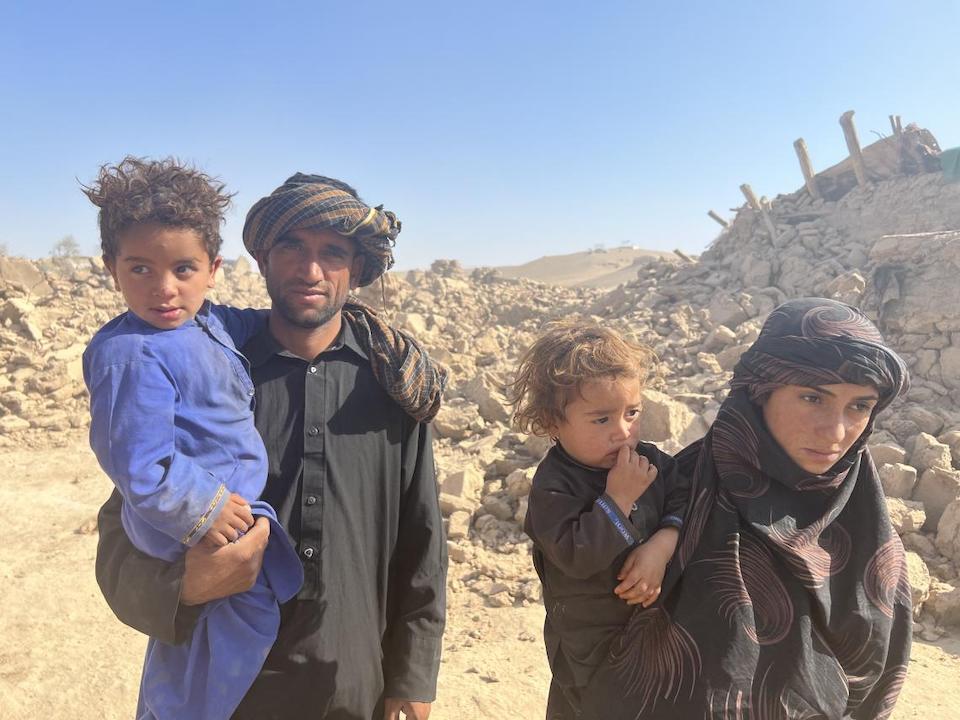
Cash assistance will help families purchase essentials for their children: food, medicine, warm clothing
With support from ECHO, UNICEF is providing cash assistance to over 2,500 families. Cash transfers give families like Bibi Jan’s flexibility and dignity to purchase essentials like food, medicine and warm clothing.
Bibi Jan and her family will need this cash assistance now more than ever. And with winter fast approaching, the needs are even more urgent for the thousands of children like hers.
Wherever and whenever children are in need, UNICEF is there to help. Your contribution can make a difference. Please donate.
This story first appeared on UNICEF.org.
HOW TO HELP
There are many ways to make a difference
War, famine, poverty, natural disasters — threats to the world's children keep coming. But UNICEF won't stop working to keep children healthy and safe.
UNICEF works in over 190 countries and territories — more places than any other children's organization. UNICEF has the world's largest humanitarian warehouse and, when disaster strikes, can get supplies almost anywhere within 72 hours. Constantly innovating, always advocating for a better world for children, UNICEF works to ensure that every child can grow up healthy, educated, protected and respected.
Would you like to help give all children the opportunity to reach their full potential? There are many ways to get involved.



